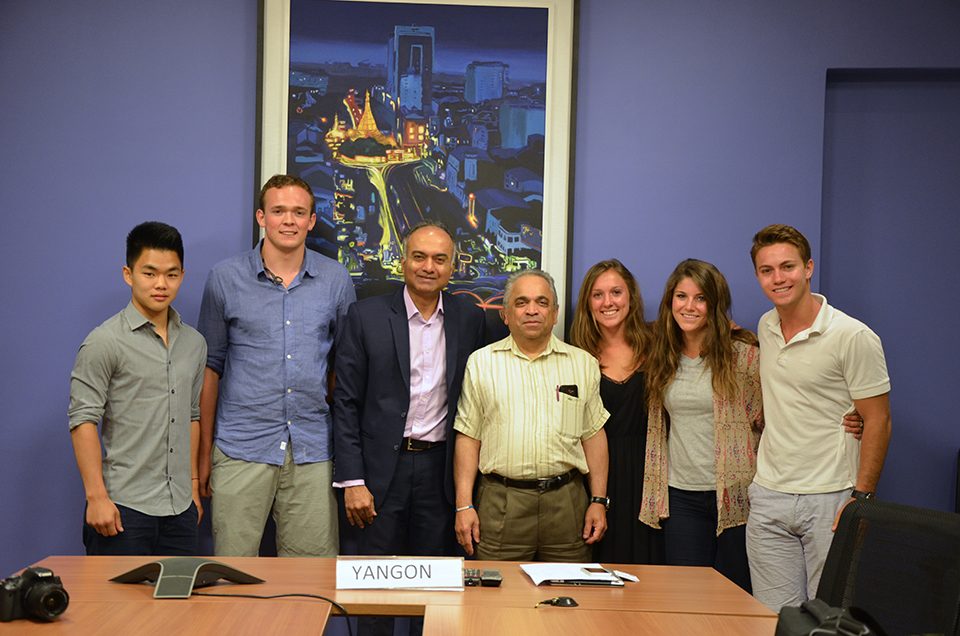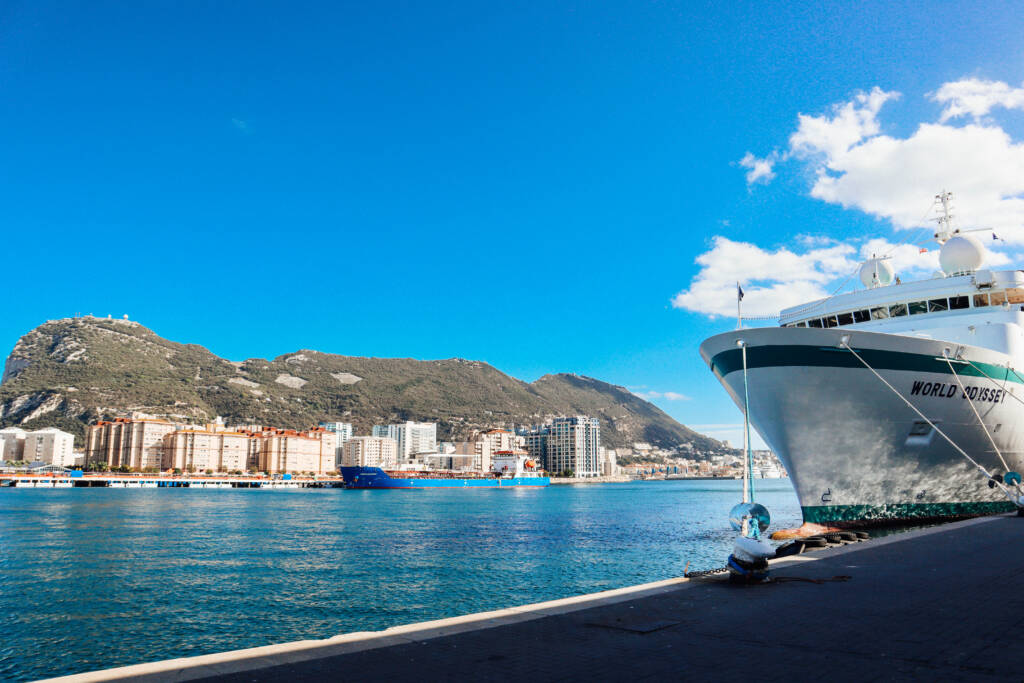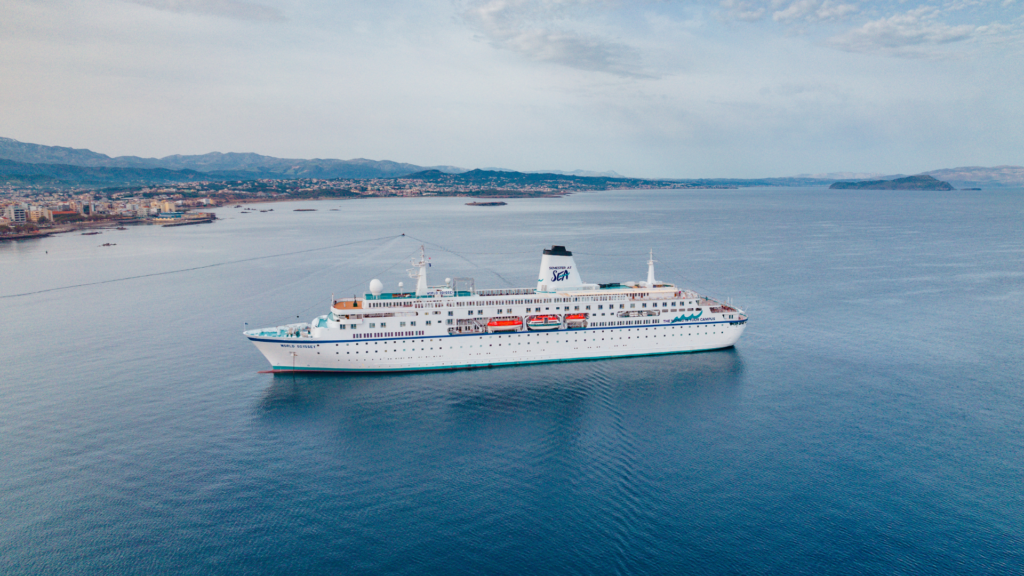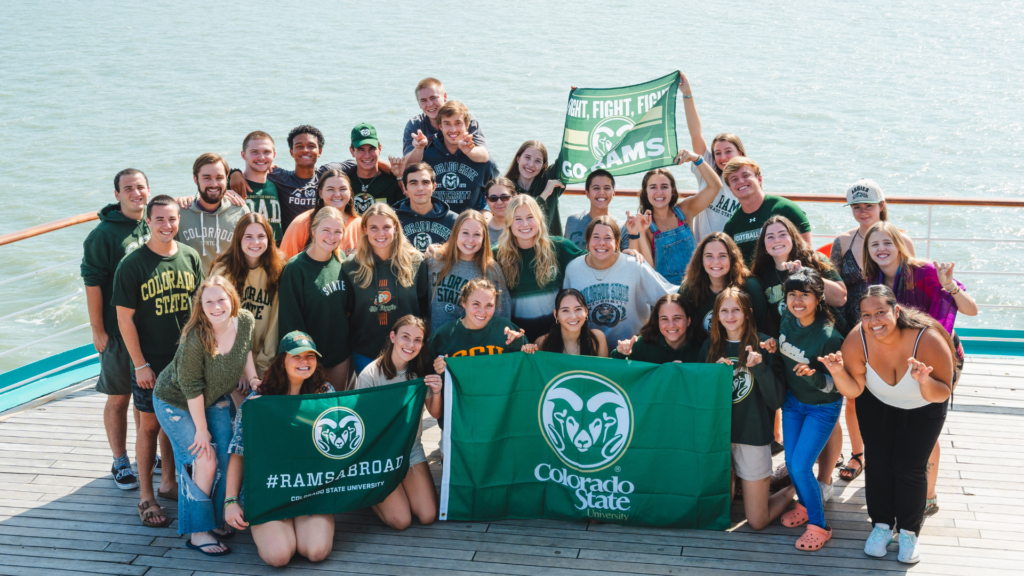As economics students we are constantly learning about how development should work on paper. Immersed in our theories and models, we are never really given the opportunity to see first-hand how what we learn applies to the real world. But as Semester at Sea’s Spring 2014 voyage sailed into Myanmar, economic development leapt off of our textbook pages and sprang to life.
Barely two hours had passed since our arrival into Yangon, and I was already heading to speak with the man leading the global effort to pull Myanmar into the 21st century. Five of us students from Professor Chandrashekhar Ranade’s Development Economics class had been invited to meet with Mr. Kanthan Shankar, the Country Manager for the World Bank in Myanmar, for an opportunity to learn about the institution’s work in transitioning the country from a dictatorship to an open democracy.
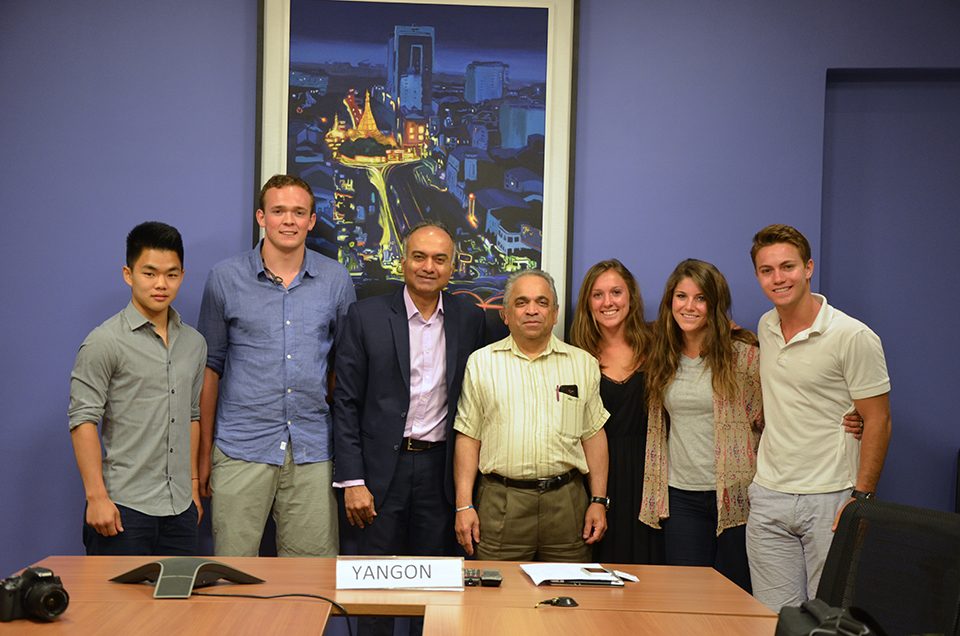
The World Bank, in pursuit of its ultimate mission to alleviate poverty and increase shared prosperity, works to create an environment for economic development in countries with difficult circumstances. With the nearly US$2 Billion committed to Myanmar from various donors including the US, Japan, Australia, and the UK, the Bank will help the nation build the backbones of a stable democracy.
As we await his arrival in the air-conditioned conference room, Professor Ranade explains that the current situation in Myanmar is similar to that of Ghana during his tenure with the World Bank in Accra some twenty years ago. “We were working to move away from all the internal conflicts by building stable democratic institutions. Since ’92, Ghana has been on course to become one of the most vibrant nations in Africa, and you’ll see that when we visit in April. I think the Bank has tasked this office to do something similar.”
Initially trained as an environmental engineer, Mr. Shankar is a man of action and it shines through the over twenty years he has dedicated to the Bank. Turning off his phone, he gives us his full attention as if we were the State Ambassadors and Fortune 500 CEO’s he had just met with before. As we recount our past two months on Semester at Sea, his eyes light up. “What an absolutely fantastic opportunity. To learn about the world and then be able to see it first-hand at your age, it goes a long way in building true global citizens.”
Mr. Shankar himself is what many of us would consider to be a model global citizen. An expert in post-conflict development, he has dedicated his career to bringing new life to areas around the world that have been ravaged by wars and genocides. When asked about his motivations to willingly go into these volatile countries, he explains that he found it far more fulfilling than managing projects from headquarters in Washington. “The human side of what I do, the determination of the local people I work with to change and better their world – that’s what I love; that’s why I’m here.”
The location of his current assignment, Myanmar, was not always the conflict-ridden country it has become known as in recent times. A large part of the difficulties it currently faces is a legacy of the former government, which has left the country with monumental social, economic, and political challenges. “A nation undergoing this kind of triple transition, moving from a closed society to an open one, conflict to peace, and authoritarianism to democracy, poses many challenges for development,” Mr. Shankar explains. “These barriers had prevented the country’s full participation in the international community.”
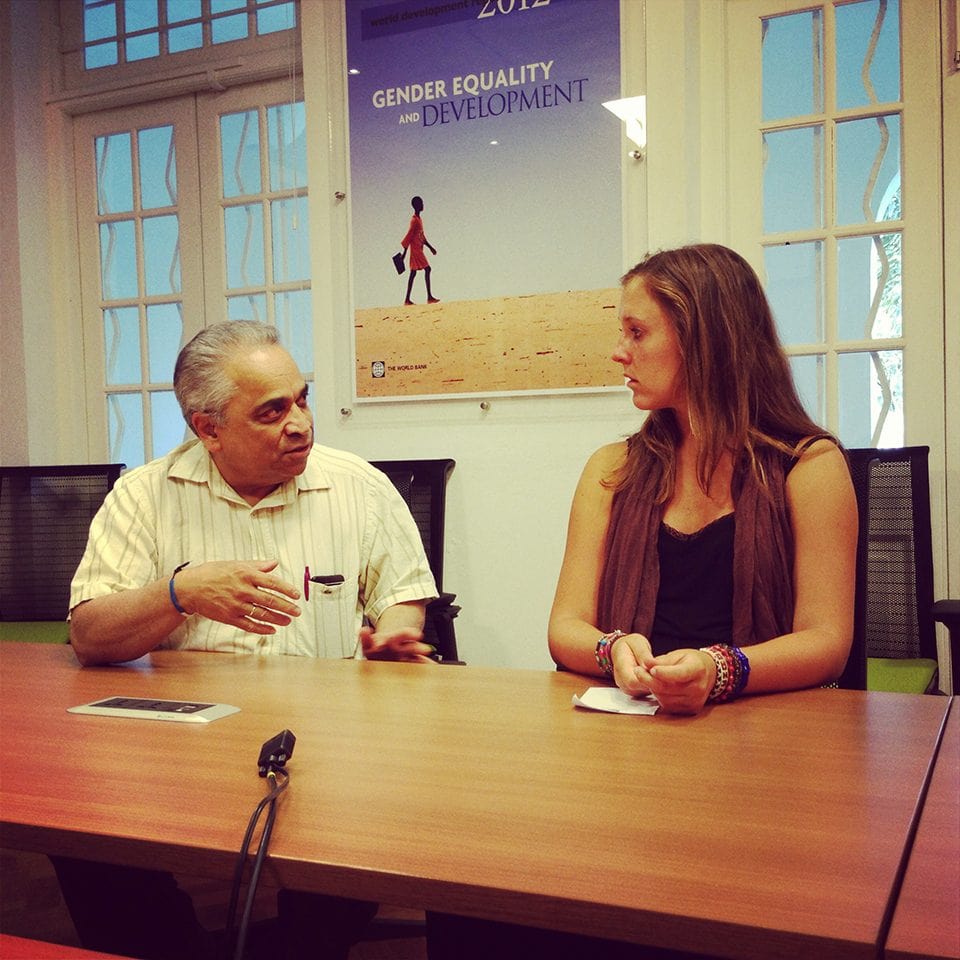
Now led by a relatively open government following a recent election, the future seems bright for Myanmar. The country has plentiful natural resources: the earth is rich with abundant reserves of precious metals and stones, the land bears some of the last remaining original growth teak forests, and its per capita water resources are some of the highest in the world.
Luxury hotel groups such as Mandarin Oriental and Shangri-La are catching on, developing landmark properties in the capital and other interior destinations in anticipation of a tourism boom. Stephanie Dove, a student at the College of Charleston (link), agrees with their reasoning. “Myanmar has definitely been my favorite port so far. Traveling in the country after our meeting with Mr. Shankar made me realize why the hotels are investing here. It’s a beautiful place with the most amazing people, and I see a lot of potential for the tourism industry.”
As we spent the next five days traveling the country, it became clear through our experiences that this was a nation ready to move forward at an unprecedented pace. From budding web developers waiting to pounce on a new nation-wide 4G network, to local real estate investment advisors guiding the decisions of global hotel chains, the country is ready to welcome the world gathering at its doorstep.
Mr. Shankar beams like a proud parent when he speaks about his outlook for Myanmar, and in that moment we can feel the confidence he has in its success. “I’m truly optimistic about the future of this country. The eyes of the world are on us, and there’s a lot of optimism and determination behind the scenes to make this work. It’s a really exciting time to be here.”
